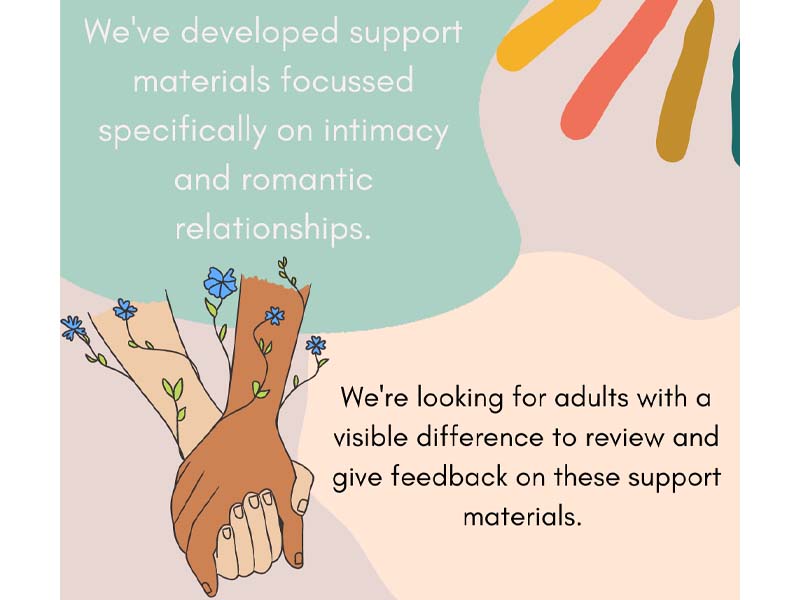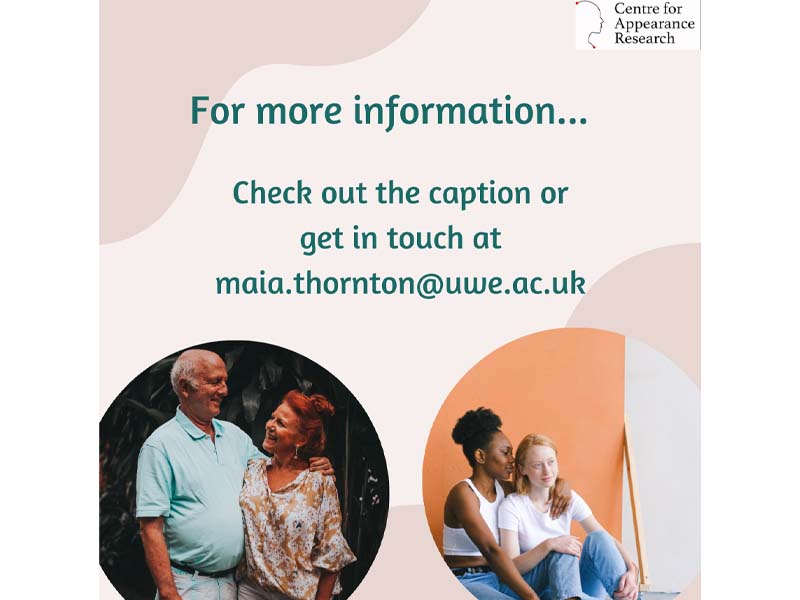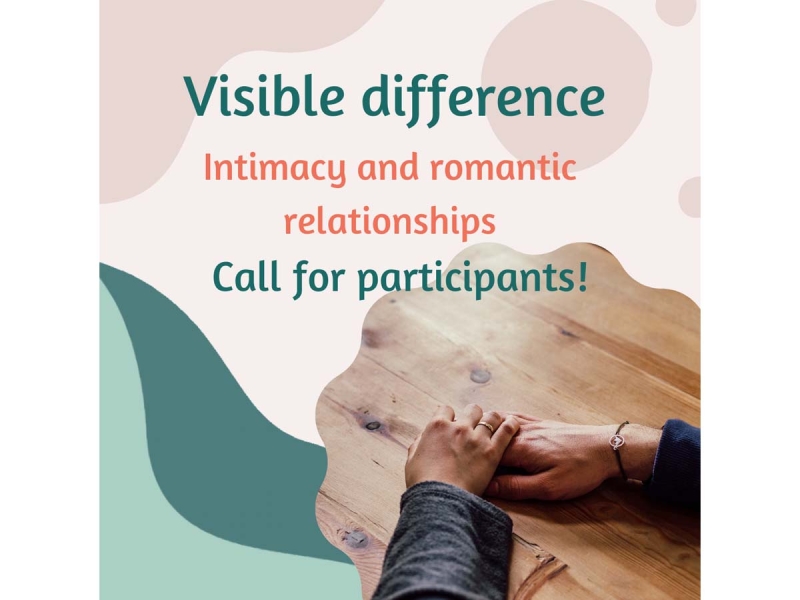CAR Relationships study
19 July 2022
Researchers at the Centre for Appearance Research greatly appreciate the time taken by all the participants to share their feedback and experiences with the Loving ACTion support materials.
Loving ACTion is a resource which is designed to support adults with visible difference, focused specifically on intimacy and romantic relationships.
Twenty-two adults with a range of different visible differences reviewed a draft of Loving ACTion and answered a short online questionnaire to provide feedback on the format and content. Overall, respondents felt that the content of the content of the support materials was relevant to them and that they identified with the lived experiences aspects of the intervention. It was also noted that the content felt applicable to a wide range of conditions and injuries. Most respondents felt that Loving ACTion would help people cope with difficult thoughts and feelings.
Most people also reported that the content was laid out well and easy to understand, although some people felt that Loving ACTion was quite long. Many people preferred listening to the content as podcast episodes rather than reading the script version. Although, some respondents also felt that it was not initially clear that the materials were focused specifically on concerns related to intimacy and romantic relationships and that there should be more mention of general support. A few people queried why the perspective of the partner or loved one of someone with a visible difference was not included.
In response to this feedback, the rest of the scripted episodes were produced in podcast format, so people can chose to either listen to or read the content. We reviewed and edited the introductory episode to ensure that the content focus, overall length, and time commitment of the support materials was clear from the beginning. We also included a list of sources of more general support at the end of each episode. Unfortunately, we were not able to include the perspectives of partners or loved ones in these materials as we currently do not have enough research from this group to develop evidence-based support. However, this is something we will consider in our plans for future research.


So, what’s next?
The next stage of this project will be to evaluate the effectiveness of these support materials. This will involve us sharing the finished podcast episodes with adults with visible differences and asking them to respond to a few questionnaires before and after listening to the episodes. If you have any questions or would like to find out more about this research, please contact Dr Maia Thornton at maia.thornton@uwe.ac.uk
Thank you again to everyone you took the time to review Loving ACTion and share their thoughts. It would not be possible to develop or share these support materials without your generous and valuable input.





